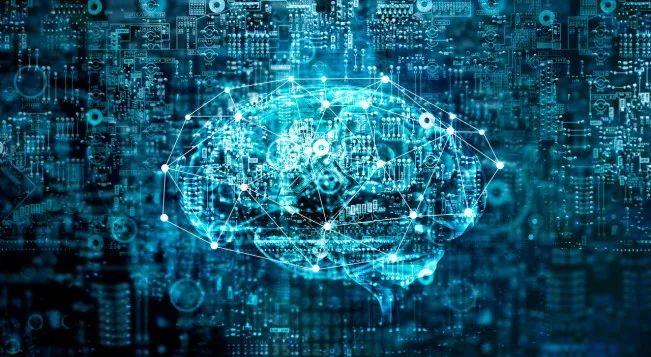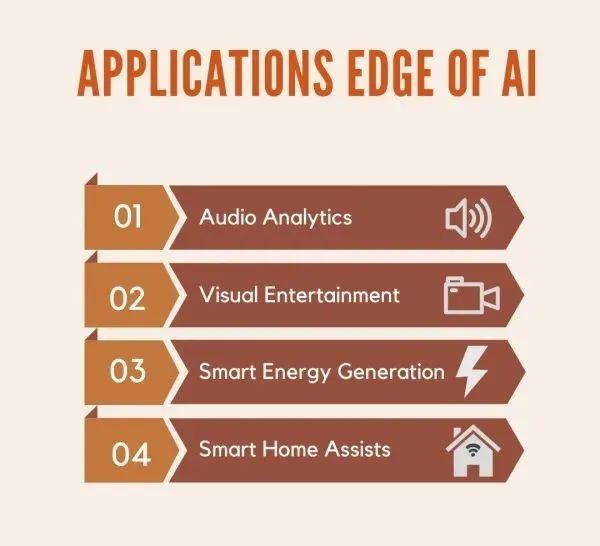
Artificial Intelligence (AI) has been steadily present in businesses around the world for a long time. The transformative power of AI has enhanced the convenience of business operations and increased return on investment for companies. Now, Edge AI represents the next stage of technological development.

So, What Is Edge AI?
Edge AI consists of AI models and algorithms that process data locally on independent hardware devices. In short, AI technology is localized, smaller in scale, and more accessible to the average person. The AI algorithms in such devices use locally generated data for real-time machine learning. The data to be processed locally is sent and received through transmission signals and sensors on such devices. This “endpoint” AI system does not need to connect to the cloud digitally to perform tasks and operations locally. Instead, they have the ability to process data and make decisions independently. As mentioned earlier, edge computing brings the power of AI to users’ personal devices, requiring built-in microprocessors and receivers to acquire processable data.
The Benefits of Edge AI
First, it is essential to understand the difference between edge computing and decentralized computing.
Whether Edge AI is better than its conventional counterpart is debatable, as they perform slightly different tasks with seamless efficiency and speed related to AI. Therefore, comparing them may not be a straightforward task. Most importantly, Edge AI is an evolved version of its predecessor. Here, we will see some of the main advantages of Edge AI.
a) Reduced Costs and Bandwidth Requirements
Cloud-based AI systems operate with large amounts of data and require significant bandwidth to function correctly. Therefore, for organizations that heavily rely on AI for daily operations, the costs associated with data and bandwidth usage are often high. Edge AI keeps data processing local to the device. Therefore, the bandwidth usage of edge AI devices is not as high as that of devices using traditional cloud AI. Thus, bandwidth costs can be controlled. More importantly, Edge AI users can also receive results faster because the network traffic of their networks and devices is low.
b) Greater Autonomy and Performance of Endpoint Devices
One of the main features of Edge AI is that it provides greater independence for all endpoint devices. As mentioned earlier, such devices can operate without connecting to a central server. Therefore, the speed and efficiency of such devices are always high. An example of this quality is the autonomous driving systems in cars on busy roads. The AI in such systems is highly automated and can make instant corrections and adjustments while driving autonomous vehicles through any type of road, unaffected by external factors. Machine learning in Edge AI devices is typically implemented in real-time.
Additionally, compared to devices powered by standard AI, those supporting Edge AI demonstrate higher responsiveness and performance levels. As we now know, Edge AI computers process data locally, eliminating the latency associated with sending data back and forth from cloud-based infrastructure. Therefore, endpoint performance is stronger, with minimal latency.
c) More Data Privacy
Needless to say, data privacy and security are critical parameters in modern computing. The possibility of data loss during transmission through various communication channels in cloud computing networks always exists. In this case, the primary inducement for data breaches is the absolute distance between two or more data points. Therefore, organizations using cloud computing and AI solutions must do their utmost to ensure their data is effectively protected. Generally, edge computing reduces the chances of data breaches or leaks due to local data processing. Moreover, users can set restrictions on who can access the data stored on their personal devices. Thus, Edge AI is a more secure choice for user data processing.
Applications of Edge AI
Now that we have seen the advantages of Edge AI solutions compared to traditional or cloud-based computing systems, here are some common practical applications of Edge AI today:

1) Audio Analysis Systems
Recognizing audio inputs and processing the data within them are two key requirements for many devices today. Audio analysis can be used for various purposes, such as Identity and Access Management (IAM) or voice-activated commands in mobile phones or luxury cars. Deep learning is applied to voice noise reduction to help systems analyze various sound triggers carefully and eliminate them.
Additionally, applications such as text-to-speech conversion can also be implemented in edge AI systems, and vice versa. Finally, audio analysis of Edge AI is also used for AI-driven chatbots.
Essentially, the localized data processing capability of Edge AI makes it possible to implement these functions in independent devices in the real world.
2) Smart Energy Systems
Applications such as interconnected wind farms can be conceptualized and seamlessly implemented using Edge AI. Generally, if a pure cloud system is used for this purpose, the costs of running such systems would be very high. In contrast, even using a hybrid cloud-edge system for computational operations, the costs of data procurement, management, and processing can be controlled. Wind farms require endpoint-based solutions as they utilize multiple monitoring cameras, access sensors, and biometric security sensors for employees working near wind turbines. These devices and sensors must operate efficiently and process data at lightning speed for the success of other wind farm operations. Therefore, Edge AI solutions can be used to reduce the costs of wind energy generation systems as well as decrease the overall processing time and bandwidth usage.
3) Visual Entertainment Systems
Edge AI is widely used in modern visual entertainment systems, including augmented reality, virtual reality, and mixed reality. For these types of systems, data processing and AI analysis must occur locally to save time and costs. It is well known that AR systems require users to wear virtual reality or 3D glasses to fully enjoy immersive visual experiences. Since the computing mechanism is processed offline via specialized edge servers, edge computing and AI can reduce the size of the glasses.
4) Smart Speakers and Home Assistants
Smart speakers and their embedded smart home assistants are popular in today’s AI-dependent world. Such devices and systems utilize Edge AI to enhance speed and data mobility, making the concept of smart homes more feasible and implementable.
Disclaimer: This article is from Qianjia Network, and we highly respect the copyright of the original author. If there are any copyright issues, please contact the editor of this public account in a timely manner. Thank you!
◆ ◆ ◆ ◆ ◆
● Huawei Cloud China Vice President Hu Weiqi Visits SuiRui to Discuss Domestic System Ecological Cooperation
● SuiRui Technology Group and Unisoc Cloud Reach Strategic Cooperation to Explore the Blue Ocean of Digital Economy Together
● Open Atom Open Source Foundation Chairman Yang Tao Visits Member Unit SuiRui Technology Group
● SuiRui Group Signs Strategic Cooperation Agreement with Baidu, Winning the Future of the Intelligent World Together with Subsidiary Xinruiya
● The Winter Olympics Have Me, Communication Without Boundaries | Beijing Winter Olympics Promotion Team Visits SuiRui Technology Group
● SuiRui Technology Appears at the Service Trade Fair, CEO Shu Cheng Speaks at the Winter Expo Theme Forum
● SuiRui Group Becomes One of the First Official Suppliers Signed by the Beijing Winter Olympics Organizing Committee
● Wuhan, We Are with You!
Company Profile
About SuiRui Technology Group
SuiRui Technology Group is an emerging “Intelligent World Builder & Operator” in the industry and is also the official collaborative office software supplier for the Beijing 2022 Winter Olympics and Paralympics, renowned in the government and enterprise market and the enterprise Internet field for many years. SuiRui has formed a core business segment centered on communication cloud and artificial intelligence, with over 700,000 self-owned clients in government/enterprise and over 10 million platform service clients, covering more than 100 million end users cumulatively, providing solutions and supporting services in the field of intelligent world for a broad government and enterprise client base. Currently, the group’s products cover technology innovation fields such as cloud computing (including communication cloud and industry management cloud), artificial intelligence, Internet of Things, industrial Internet, big data platforms, edge computing, and information security.
Contact Us
Headquarters: Building 18/19, Aobei Technology Park, No. 1 Baosheng South Road, Haidian District, Beijing, SuiRui Center
Global Customer Hotline: +86 400-010-6066
